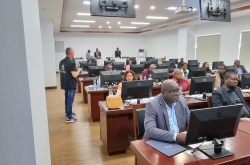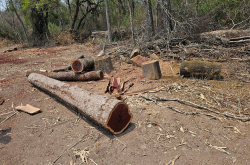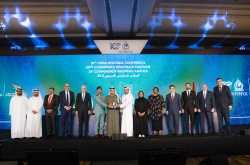NAIROBI, Kenya – Social media permeates nearly all aspects of our daily lives, helping us to connect, share information and cultivate a globally minded society.
Unfortunately, criminals have also discovered the power and global reach of social media, and are using it to facilitate their crimes.
Terrorist groups spread propaganda through social networks and coordinate activities using encrypted apps. Criminals use social media services to advertise and sell illicit drugs, weapons, animal products and cybercrime services. Children are groomed on social media by abusers, who also use it to share abuse images.
Support to police in Africa
To assist police across Africa in understanding the ways in which criminals leverage social media and how to incorporate social media into their criminal investigations, INTERPOL held a virtual workshop on ‘Social Media and Law Enforcement’ for 37 officers from 13 African countries.
Organized by INTERPOL’s Regional Counter-Terrorism Nodes in Africa, the two-day (11 and 12 August) meeting reviewed how countries can engage INTERPOL for investigative and operational support in cases with a social media element. While the focus was on counter-terrorism investigations and the role of INTERPOL’s Terrorism Online Presence unit, other types of crime known to have online elements were also discussed.
The workshop also explored the role of social media in police investigations, how to request assistance, restrictions on data sharing and other legal considerations.
Regional Counter-Terrorism Nodes
INTERPOL’s Regional Counter-Terrorism Nodes (RCTNs) are strategically located near conflict zones or key terrorism hotspots and serve as the focal points for the Organization’s counter-terrorism activities in those regions. Covering Eastern and Southern Africa, Western and Central Africa, Asia-Pacific, Europe, the Americas, and the Middle East and North Africa, the RCTNs provide direct support to law enforcement in each region to enhance their counter-terrorism response.
Underscoring INTERPOL’s commitment to assisting police across Africa to incorporate online elements into their investigations, a similar training course was held earlier this year for Libyan law enforcement officers on how best to exploit the Internet and specific social media sites in counter-terrorism investigations.
See also
Related news

Border security threats focus of STOP operations in Africa
8 December 2023
14 terror suspects arrested in African operation
9 June 2023





